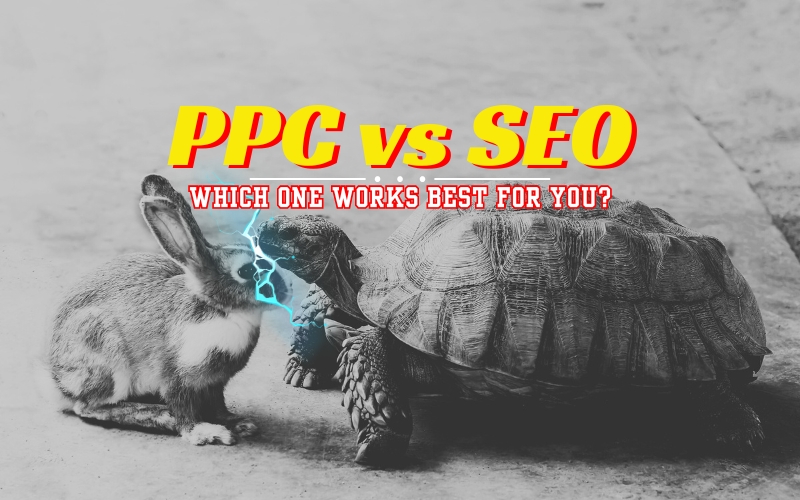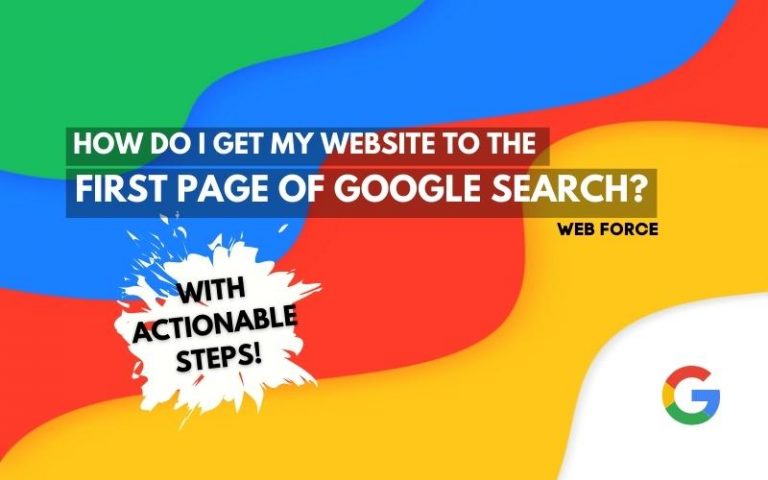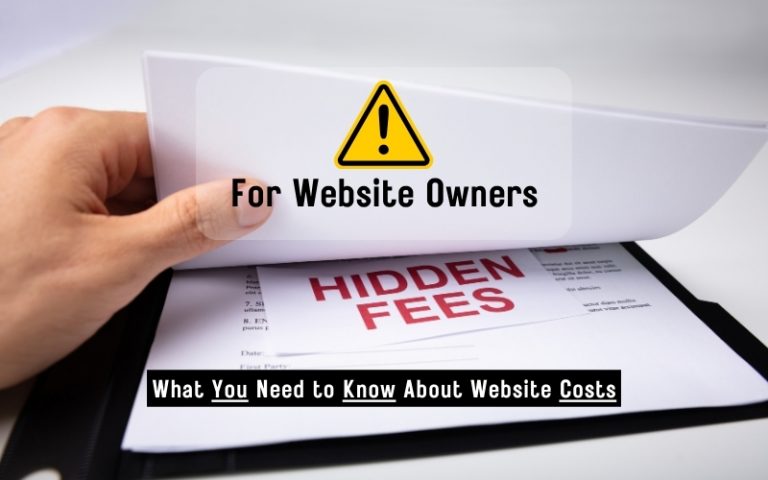Demystifying Digital Advertising: SEO vs. PPC
Looking to grow your online presence and boost your business? You’ve probably come across the terms SEO and PPC. But what do they really mean, and which one should you choose?
SEO, or Search Engine Optimization, focuses on improving your website’s organic visibility on search engine results pages. By optimizing your website, creating quality content, and building high-quality backlinks amongst other things, you can increase your chances of ranking higher in search engine results.
On the other hand, PPC, or Pay-Per-Click, allows you to advertise your website on search engine result pages by bidding on keywords. With PPC, you pay for each click your ad receives, and it provides immediate visibility and targeted traffic.
Both SEO and PPC have their advantages and disadvantages, and the best approach for you depends on your business goals, budget, and timeline. By understanding the key differences between SEO and PPC, you can decide which one works best for your business. A mature business will adapt a healthy mix of both SEO and PPC marketing into their strategy.

Understanding SEO (Search Engine Optimization)
Search Engine Optimization, or SEO, is the practice of optimizing your website to improve its organic visibility on search engine results pages. The goal of SEO is to increase your website’s chances of ranking higher in search engine results, ultimately driving more organic traffic to your site.
One of the primary components of SEO is keyword optimization. By conducting thorough keyword research and strategically incorporating relevant keywords into your website’s content, meta tags, and URLs, you can increase your chances of appearing in search results when users search for those specific keywords.
Another crucial aspect of SEO is creating high-quality and relevant content. Search engines value websites that provide valuable information to users. By regularly publishing informative and engaging content, you can establish your website as a credible source of information in your industry, which can lead to higher search engine rankings. This is measured by user engagement metrics like time spent on a website and clicks/scrolls on a web page.
Building high-quality backlinks is also a vital part of SEO. Backlinks are links from other websites that point to your site. When reputable websites link to your content, it signals to search engines that your website is trustworthy and authoritative. The more backlinks you have from reputable sources, the higher your website’s ranking potential.
While SEO can be a highly effective long-term strategy for driving organic traffic to your website, it does require ongoing effort and patience. It takes time for search engines to recognize and reward the optimizations you make to your website. Additionally, SEO is constantly evolving, as search engines update their algorithms. Successful strategy five years ago will probably not be as effective in the present day. Staying up to date with the latest SEO best practices is essential for maintaining and improving your website’s rankings.
Benefits and drawbacks of SEO
SEO offers several benefits for businesses looking to increase their online visibility:
- Cost-effective: Unlike PPC, where you pay for each click, organic traffic generated through SEO is essentially free. Once you’ve invested in optimizing your website and creating quality content, you can continue to reap the benefits without incurring additional costs.
- Long-term results: While SEO may take time to show results, the effects can be long-lasting. By consistently implementing SEO strategies, you can establish a strong online presence that continues to drive organic traffic to your website for years to come.
- Increased brand credibility: Higher search engine rankings can significantly enhance your brand’s credibility and trustworthiness. When users see your website ranking high in search results, they are more likely to perceive your brand as an authority in your industry.
However, SEO also has its drawbacks:
- Time-consuming: SEO is not a quick fix. It requires ongoing effort and patience to optimize your website, create quality content, and build backlinks. If you’re looking for immediate results, SEO may not be the best option.
- Competition: SEO is a highly competitive field. Depending on your industry and target keywords, it may be challenging to outrank your competitors in search engine results. This is especially true for established websites with a strong online presence.
- Algorithm changes: Search engines regularly update their algorithms, which can impact your website’s rankings. Keeping up with these changes and adjusting your SEO strategies accordingly can be time-consuming and challenging.
Understanding PPC (Pay-Per-Click) advertising
Pay-Per-Click, or PPC, advertising allows you to place targeted ads on search engine result pages by bidding on keywords. With PPC, you only pay when someone clicks on your ad, making it a cost-effective way to drive immediate traffic to your website.
The most popular PPC advertising platform is Google Ads (formerly Google AdWords) followed by Meta Advertising (Facebook and Instagram), which allows you to create text, display, and video ads that appear on Google’s search results and partner websites.
One of the key advantages of PPC advertising is its ability to provide immediate visibility. Unlike SEO, which takes time to show results, PPC ads can appear at the top of search results as soon as you launch your campaign. This immediate visibility can be especially beneficial if you’re looking to promote a time-sensitive offer or event.
Another benefit of PPC is its targeting capabilities. With PPC, you can choose specific keywords and demographics to ensure your ads are shown to the most relevant audience. This targeted approach helps increase the likelihood of converting clicks into leads or sales.
Unlike SEO, where organic traffic is free, PPC advertising requires a budget. You need to set a daily or monthly budget for your PPC campaign, and you pay each time someone clicks on your ad. The cost per click (CPC) varies depending on factors such as keyword competitiveness and ad quality. It’s essential to monitor your PPC campaigns closely to ensure you’re getting a positive return on investment (ROI).
Benefits and drawbacks of PPC
PPC advertising offers several benefits for businesses looking to drive targeted traffic to their websites:
- Immediate visibility: PPC ads can appear at the top of search engine results pages as soon as you launch your campaign. This immediate visibility can help drive traffic to your website quickly.
- Precise targeting: With PPC, you have control over who sees your ads. You can choose specific keywords, demographics, and even geographical locations to ensure your ads are shown to the most relevant audience.
- Measurable results: PPC advertising provides detailed analytics and reporting, allowing you to track the performance of your ads. You can monitor metrics such as impressions, clicks, and conversions to measure the effectiveness of your campaigns and make data-driven decisions.
However, PPC advertising also has its drawbacks:
- Costs can add up: While PPC can be cost-effective, especially when campaigns are optimized, the costs can add up quickly, especially if you’re targeting highly competitive keywords. It’s essential to set a realistic budget and constantly monitor your campaigns to ensure you’re getting a positive ROI.
- Dependent on budget: Once your budget runs out, your ads will no longer appear. This means that your website’s visibility will decrease, and you’ll no longer receive traffic from PPC ads unless you increase your budget.
- Learning curve: PPC advertising platforms can be complex and mastering them requires time and effort. To optimize your campaigns and achieve desired results, you may need to invest in learning or hiring a PPC specialist.

SEO vs. PPC: Key differences and similarities
While both SEO and PPC aim to increase your website’s visibility and drive traffic, there are key differences between the two approaches:
- Visibility: With SEO, your website’s visibility is organic and determined by search engine algorithms. With PPC, your visibility is immediate and determined by your ad quality, bid amount, and budget.
- Cost: SEO is a long-term investment that requires time and effort, but once you’ve optimized your website, the traffic it generates is essentially free if you are doing it yourself. PPC, on the other hand, requires a budget, and you pay for each click your ad receives.
- Timeframe: SEO is a long-term strategy that takes time to show results. It can take weeks or even months to see a significant improvement in your website’s rankings. PPC, on the other hand, provides immediate visibility and can drive traffic to your website as soon as you launch your campaign.
- Targeting: While SEO allows you to optimize your website for specific keywords, it doesn’t offer the same level of targeting as PPC. With PPC, you can choose specific keywords, demographics, and geographical locations to ensure your ads reach the most relevant audience.
Despite these differences, SEO and PPC also share some similarities:
- Keyword research: Both SEO and PPC require keyword research to identify the most relevant and high-performing keywords for your business. By understanding what your target audience is searching for, you can optimize your website or create targeted PPC campaigns.
- Quality content: Both SEO and PPC benefit from high-quality and relevant content. SEO relies on content to optimize your website and provide value to users, while PPC ads with compelling copy and relevant landing pages tend to perform better.
- Tracking and analytics: Both SEO and PPC provide data and analytics to track the performance of your campaigns. The metrics will be different but the respective data can be used to improve your overall strategy. By monitoring metrics such as impressions, clicks, and conversions, you can make data-driven decisions to optimize your strategies and improve results.
Factors to consider when choosing between SEO and PPC
When deciding between SEO and PPC, several factors should be taken into consideration:
- Budget: Consider your budget and how much you’re willing to invest in digital advertising. If you are tackling SEO yourself, it can be cheaper than PPC adverting. However, if you are considering an agency for these services, PPC adverting has a lower entry cost. In the long-term SEO has a higher ROI.
- Timeframe: Determine your timeframe for results. If you’re looking for immediate visibility and traffic for seasonal growth, PPC is the way to go. If you’re willing to invest time and effort into a long-term strategy, SEO can provide sustainable results over time.
- Competition: Assess the level of competition in your industry. If your competitors are already dominating the organic search results, it may be challenging to outrank them with SEO alone. In this case, PPC can help you gain immediate visibility and compete effectively.
- Target audience: Consider the preferences and behaviour of your target audience. What will your potential customers be searching for specifically on search engines? Understanding your audience’s search behaviour can help you determine which approach will be more effective in reaching them.
- Goals: Define your goals and objectives. Are you looking to increase brand awareness, generate leads, or drive sales? Different goals may require different strategies. SEO is often more effective for long-term brand building, while PPC can be more effective for short-term campaigns or specific promotions.
How to determine which option is best for your business
To determine whether SEO or PPC is the best option for your business, consider the following steps:
- Evaluate your goals: Clearly define your goals and objectives. Determine whether you’re looking for immediate visibility, long-term brand building, lead generation, or sales.
- Assess your budget: Consider your budget and how much you’re willing to invest in digital advertising. Determine whether you have the resources to invest in ongoing SEO efforts or if you’re looking for immediate results with PPC.
- Analyse your competition: Research your competitors and assess their online presence. If they have a strong organic presence, it may be challenging to outrank them with SEO alone. In this case, PPC can help you gain a competitive edge.
- Understand your target audience: Gain insights into your target audience’s search behaviour and preferences. Determine whether they’re more likely to click on organic search results or paid ads when searching for products or services like yours.
- Seek professional advice: If you’re unsure which option is best for your business, consider consulting with a digital marketing professional. They can provide insights and recommendations based on your specific industry, goals, and budget.
Conclusion: Making an informed decision for your digital advertising strategy
In conclusion, both SEO and PPC have their advantages and disadvantages, and the best approach for your business depends on your goals, budget, timeline, your industry and may be a blend of both SEO and PPC advertising. SEO is a long-term strategy that can provide sustainable results over time, while PPC offers immediate visibility and targeted traffic.
Remember that SEO and PPC are not mutually exclusive. In fact, they can complement each other and work together to maximize your digital advertising efforts. By combining SEO strategies with targeted PPC campaigns, you can drive both organic and paid traffic to your website, reaching a broader audience and maximizing your online visibility.
Web Force offers both PPC adverting and SEO services to help your business or organization flourish. Contact Us Today.



